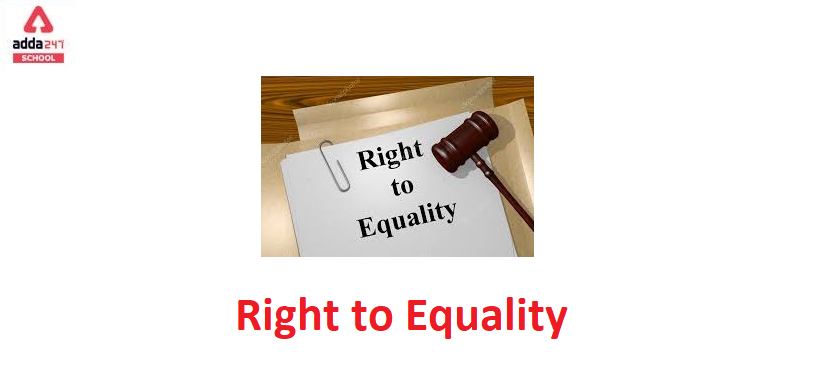Significance of Right to Equality
There are six fundamental rights in the constitution of India of which one is the Right to equality. Right to equality is mentioned in articles 14 to article 18. Article 14 is equality before the law, Article 15 is the prohibition of discrimination, Article 16 is equality of opportunity in matters of public employment, Article 17 is the abolition of untouchability, and Article 18 is the abolition of title. In other words, the right to equality gives the citizens to live with equal opportunities.
The right to equality ensures that every citizen, from the prime minister to normal citizen is treated equally before the law without any discrimination. The law should not be either arbitrary or it should be guaranteed privilege.
Right to equality- Article 14-18
Article 14- Equality before the law
Equality before the law and equal protection of the law. Equality before the law means that no individual should be given an unfair advantage of the law. The law should protect everybody.
Article 15 – Prohibition of discrimination
The law states that no citizen should be discriminated against based on race, religion, caste, sex, or subject to any disability. There is full access to public places for every citizen. Article 15, also states that special provisions can be made for women, children, and backward classes.
Article 16- Equality of opportunity in matters of public employment
Equal employment opportunity for all citizens is provided by Article 16. For any matter of public employment opportunity, no citizen should be discriminated against based on caste, creed, and gender.
Article 17- Abolition of untouchability
The practice of untouchability is prohibited by Article 17. Untouchability is the practice of discriminating Dalits from general castes. Any case that is in favor of untouchability will be known as an offense.
Article 18- Abolition of title
Except for military and academic titles, the state doesn’t confer any other titles. The state prohibits the citizens of India from accepting titles from foreign countries. The award or titles awarded by the British Empire are abolished.
Importance of Right to equality
Equality is an important fundamental right, which is accessible to every citizen of India. Equality is for everyone and one should not be over advantaged by it. Throughout these years equality has played an important role in nation-building. It provides equal opportunities and positions to every citizen. For example, in the field of women empowerment, women have been growing day by day and step by step because they are provided equal freedom like normal citizens.
Equality reduces crime and poverty. The main reason for crime and poverty is the difference in the social classes of people. If there will be no such notion of upper and lower class and every citizen has equal opportunities then there is a chance that there will be no poverty and fewer crime rates.
Equality brings out peace and harmony. Every citizen will be at peace if there is equality in education institutions, government offices, job opportunities, etc.
Equality improves the health of people. Health problems are most common in people who suffer from poverty. With equality, we can conquer poverty and with that, we can also tick out the health problems.
Equality influences democracy. In a democracy, people have the right to choose their leader by by-election. When there is equality between the citizens, the conflicts that occur during elections won’t happen and people will choose the leader who has the potential of running our country.
Related Post:
- Polynomial- Definition, Formula, Types, Function, Degree, Example
- What Is The Valency Of Carbon And Its Compounds?
- Moment Of Inertia- Definition, Formula, Factors, Example, Unit
- Magnetic Flux- Definition, Density, Formula, SI Unit
Right to Equality: FAQs
1. what is the right to equality in the constitution?
A. Right to equality is described in articles 14 to 18. This article provides equal laws and regulations to the citizen of India. The right says that every citizen of India has the right to be equally judged by the law, equality of religion, and caste.
2. what is the right of social equality and equal access to public areas?
A. The right to social equality and equal access states that no people shall be discriminated against based on Colour, caste, creed, language, etc. Every person shall have the right to equal access to public places like museums, railway stations, temples, etc.
3. what do you mean by equality before the law?
A. Equality before law states that every person should be treated equally by the law. No person should get unfair advantage of the law.









 NCHMCT JEE 2026: Exam Date, Online Regis...
NCHMCT JEE 2026: Exam Date, Online Regis...
 CUET PG 2026 Registration Started at exa...
CUET PG 2026 Registration Started at exa...
 CLAT Result 2026 Release Date, How to Do...
CLAT Result 2026 Release Date, How to Do...














